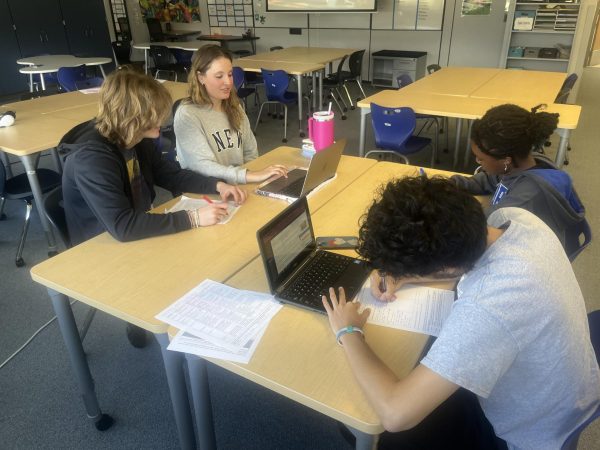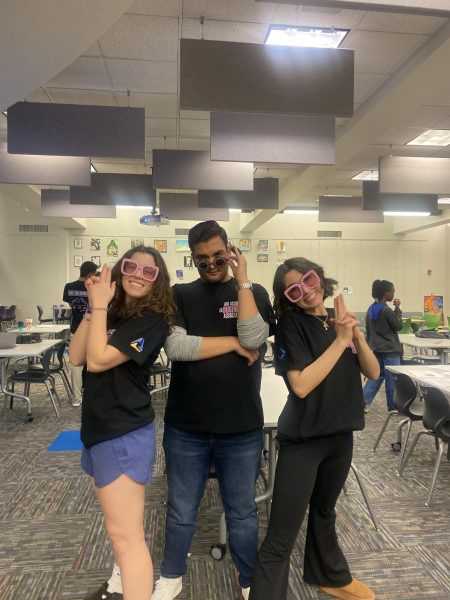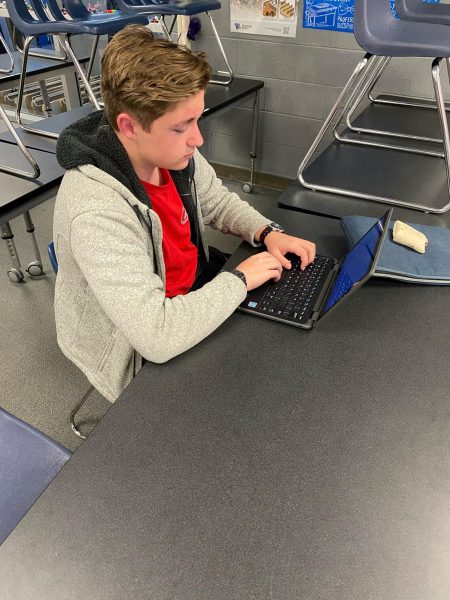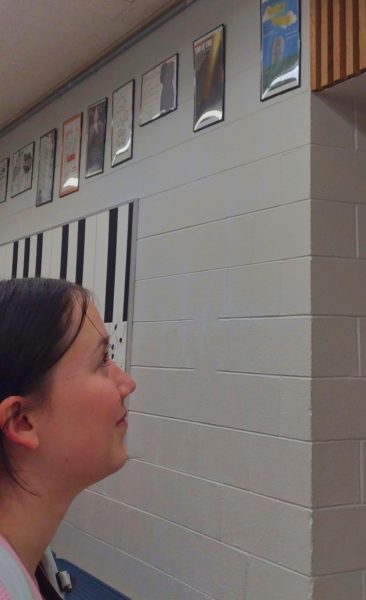Students’ Sleep Crisis
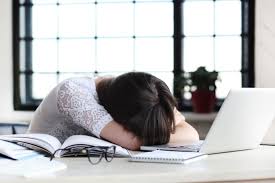
Student Asleep At Desk. Licensed for creative commons by pxhere.com
If you ask any student on any given day how they are doing, most of the time they will say that they are tired.
Chronic tiredness and sleep deprivation can be one of the biggest problems, not just for Air Academy, but schools around the world. These issues can make it hard to focus and stay awake in class and harder to find the energy to finish assignments.
The root of this problem is how late students stay up and how early they get up, but it’s also not entirely avoidable.
According to the National Sleep Foundation, going to sleep later, and waking up later should be expected.
“Research shows that adolescents require at least as much sleep as they did as children, generally 8 1/2 to 9 1/4 hours each night…the typical adolescent’s natural time to fall asleep may be 11 pm or later,” according to the Foundation.
If students can go to bed at 11, they can get a healthy amount of sleep before school starts, but this doesn’t account for getting ready for school and transportation to school during a typical year.
Dr. Mary A. Carskadon, leader of a research study, on what happens to sleep during the transition from middle, to high school, notes the need for a schedule.
“Even without the pressure of biological changes, if we combine an early school starting time–say 7:30 a.m., which, with a modest commute, makes 6:15 a.m. a viable rising time–with our knowledge that optimal sleep need is 9 1/4 hours, we are asking that 16-year olds go to bed at 9 p.m.,” Carskadon said.
In the same study, Carskadon found that the average amount of sleep on a school night dropped from 7 hours 9 minutes to 6 hours 50 minutes, during the switch to high school.
“(This) is significant because the students were already accumulating a sleep deficit,” Carskadon commented.
According to Harvard Medical, there are many negative side effects of lack of sleep.
“In the short term, a lack of adequate sleep can affect judgment, mood, ability to learn and retain information, and may increase the risk of serious accidents and injury. In the long term, chronic sleep deprivation may lead to a host of health problems including obesity, diabetes, cardiovascular disease, and even early mortality,” said the authors on harvardmed.edu.
It is clear, students arent getting enough sleep, and it can have dangerous effects on their health.
“During the school week, I usually get about 6-8 hours of sleep. I’m always pretty exhausted during my first class,” Junior Nick Rytting said. “I also feel like because we’re now required to do all our work online, it overloads our eyes with blue-light, it makes it more difficult to get to sleep earlier.”
Unfortunately, until there is a bigger call for a change of schedule, this problem won’t have a good solution, and it will be up to students to get to bed as early as possible.

Howdy! I'm Michael, and this is my first year writing for the Jetstream Journal. I love hiking, video games, and hanging out with my friends and pets....



